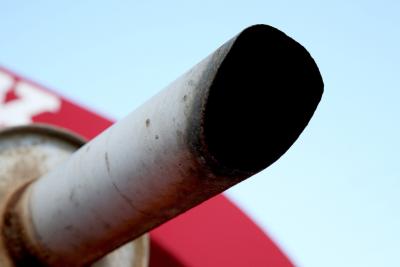
As of July, 2011, 31 states in the United States require some form of emissions testing of motor vehicles as a requirement for registration. These inspections may be required annually or biannually and some states restrict smog testing to residents of certain counties, usually urban areas. Acceptable standards for the various constituents of automotive emissions vary widely by state as do options and consequences for when a vehicle fails its smog test. Currently, California has the most comprehensive and most strict emissions standards for motor vehicles in the United States. In many states, off-line pre-testing of a vehicle before its official smog test is permitted. Going into your official smog test with necessary repairs already made, or at least armed with the advance knowledge of what the likely outcome of the test will be, has several advantages.
Pre-testing your vehicle before its scheduled official smog test lets you prepare in advance for expenses and inconveniences, if any, that await you when you go in for the real thing. Failing an official smog test usually means on-the-spot adjustments or repairs that can amount to several hundred dollars or more. Necessary funds may need to be budgeted beforehand. Also, arrangements for alternate transportation while the vehicle is in the shop being repaired can be more easily made in advance.
Pre-testing a vehicle in advance of the expiration date of its smog certificate gives you better options for repair, should it fail the pre-test. When you're not facing the imminent expiration of your registration -- including a steep fine for continued operation after the deadline -- you have the time to comparison shop, get second opinions from trusted mechanics and find the best deal on repairs.
In California, information about a failed official smog test is instantly transmitted to the Department of Motor Vehicles' computer database. If you fail by a margin deemed excessive by the state, your vehicle is considered to have a High Emission Profile and is permanently designated a "Gross Polluter." Even if you make immediate repairs to reduce emissions, this designation can never be rescinded and is attached to the vehicle registration as long as the vehicle remains on the road. All Gross Polluters must thereafter be inspected at specific "Test Only" locations, many of which charge a higher fee than standard smog inspection stations, and repairs must be made at certain state-designated shops that have less incentive to price competitively. A smog pre-test, on the other hand, is conducted entirely off-line. The computer is not connected to the state DMV. A major fail on a pre-test provides all the data needed to diagnose the malfunction and make repairs to lower emissions -- without exposing the owner to the risk of a permanent Gross Polluter designation and the long-term consequences that ensue.
When it's time to sell your vehicle, prospective buyers may use online services to search the state motor vehicle database and examine its smog test record. Buyers tend to be wary of a vehicle with a long history of failing official smog tests. This can affect the vehicle's resale value, particularly in states where emissions standards are stringent. By getting an off-line pre-test, which does not create a record in the state database, and then making any necessary repairs before submitting to the official inspection, you avoid racking up a lengthy "rap sheet" of repeated smog test attempts and failures, which devalue your vehicle and discourage buyers.